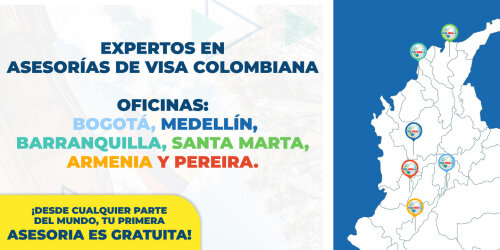Best Nonprofit & Charitable Organizations Lawyers in Armenia
Share your needs with us, get contacted by law firms.
Free. Takes 2 min.
List of the best lawyers in Armenia, Colombia
About Nonprofit & Charitable Organizations Law in Armenia, Colombia
Nonprofit and charitable organizations in Armenia, Colombia, operate under a legal framework designed to facilitate social, cultural, educational, and community development activities. These organizations, often referred to as "Entidades Sin Ánimo de Lucro" (ESAL), play a crucial role in addressing public welfare needs. They are subject to specific registrations, regulatory compliance, and governance requirements to ensure transparency and accountability.
Why You May Need a Lawyer
Engaging a lawyer can be vital for navigating the complexities of establishing and managing a nonprofit or charitable organization in Armenia, Colombia. Common situations where legal assistance may be required include:
- Understanding and complying with registration and tax-exemption requirements.
- Drafting and reviewing organizational documents, such as bylaws and articles of incorporation.
- Addressing governance and board management issues.
- Navigating labor laws related to hiring and managing employees or volunteers.
- Ensuring compliance with solicitation and fundraising laws.
- Resolving disputes or legal issues involving donors, beneficiaries, or other stakeholders.
Local Laws Overview
The legal landscape for nonprofits in Armenia, Colombia, includes several key aspects:
- Registration and Legal Recognition: Nonprofit organizations must register with the Colombian Chamber of Commerce to obtain legal recognition.
- Tax Exemption: To qualify for tax exemptions, organizations must fulfill specific conditions and apply through the national tax authority, DIAN.
- Governance: Organizations must have a governing board, adhere to their bylaws, and conduct regular meetings as stipulated by law.
- Finance and Auditing: Nonprofits are subject to financial transparency and may be required to undergo regular audits depending on their size and income levels.
- Fulfillment of Objectives: The activities of nonprofits must align with their stated objectives and mission as outlined in their founding documents.
Frequently Asked Questions
What is the difference between a nonprofit and a for-profit corporation in Colombia?
A nonprofit is designed to support public or social causes without generating profit for its members, while a for-profit aims to generate income for its shareholders or owners.
How do I start a nonprofit organization in Armenia, Colombia?
To start a nonprofit, you must draft articles of incorporation, register with the Chamber of Commerce, and comply with the legal and tax requirements applicable to ESALs.
Are nonprofits required to pay taxes in Colombia?
Registered nonprofits may be eligible for tax-exempt status but must apply through DIAN and meet ongoing compliance requirements to maintain their status.
What governance structure is required for a nonprofit in Colombia?
Nonprofits must have a governing board or assembly and conduct periodic meetings as defined in their bylaws. Clear roles and responsibilities are essential for legal compliance.
Can a nonprofit in Colombia generate revenue?
Yes, nonprofits can generate revenue through activities and services, but the earnings must be reinvested back into the organization to further its goals rather than distributed to members.
How can a nonprofit apply for grants or funding?
Nonprofits can apply for domestic and international grants, but must ensure compliance with both Colombian laws and the requirements of the funding bodies.
What are the reporting requirements for nonprofits?
Nonprofits must adhere to financial reporting and, depending on the size, may be subject to auditing. Regular reports to the Chamber of Commerce and DIAN may also be required.
How can my nonprofit achieve sustainability?
Nonprofits can achieve sustainability through diverse funding streams, good governance, strategic partnerships, and efficient resource management.
What liabilities do board members face in a nonprofit?
Board members have fiduciary duties and may face legal liabilities for breaches such as negligence, misuse of funds, or failure to meet compliance requirements.
How to dissolve a nonprofit in Colombia?
The dissolution involves settling debts, distributing remaining assets per legal requirements, and formally canceling registrations with the Chamber of Commerce and tax authorities.
Additional Resources
Several resources and organizations can offer further assistance:
- Chamber of Commerce (Cámara de Comercio): Essential for registration and legal compliance information.
- DIAN (Dirección de Impuestos y Aduanas Nacionales): Provides guidelines on tax exemptions and legal duties.
- Central Board of Directors for Nonprofits (Junta Central de Entidades Sin Ánimo de Lucro): Offers regulatory oversight and guidance.
- Local Nonprofit Networks: Connect with peer organizations to exchange knowledge and best practices.
Next Steps
If you require legal assistance in the field of Nonprofit & Charitable Organizations in Armenia, Colombia, you should consider the following steps:
- Conduct Preliminary Research: Gather background information on the legal requirements relevant to your organization.
- Consult with Legal Professionals: Engage with attorneys specializing in nonprofit law for tailored legal advice.
- Attend Training or Workshops: Educational sessions can provide useful insights on regulatory updates and organizational best practices.
- Review Legal Documentation: Ensure that all organizational documents are up-to-date and compliant with the law.
- Contact Relevant Authorities: For specific queries or clarifications, reach out directly to the relevant governmental bodies or regulatory agencies.
Lawzana helps you find the best lawyers and law firms in Armenia through a curated and pre-screened list of qualified legal professionals. Our platform offers rankings and detailed profiles of attorneys and law firms, allowing you to compare based on practice areas, including Nonprofit & Charitable Organizations, experience, and client feedback.
Each profile includes a description of the firm's areas of practice, client reviews, team members and partners, year of establishment, spoken languages, office locations, contact information, social media presence, and any published articles or resources. Most firms on our platform speak English and are experienced in both local and international legal matters.
Get a quote from top-rated law firms in Armenia, Colombia — quickly, securely, and without unnecessary hassle.
Disclaimer:
The information provided on this page is for general informational purposes only and does not constitute legal advice. While we strive to ensure the accuracy and relevance of the content, legal information may change over time, and interpretations of the law can vary. You should always consult with a qualified legal professional for advice specific to your situation.
We disclaim all liability for actions taken or not taken based on the content of this page. If you believe any information is incorrect or outdated, please contact us, and we will review and update it where appropriate.












